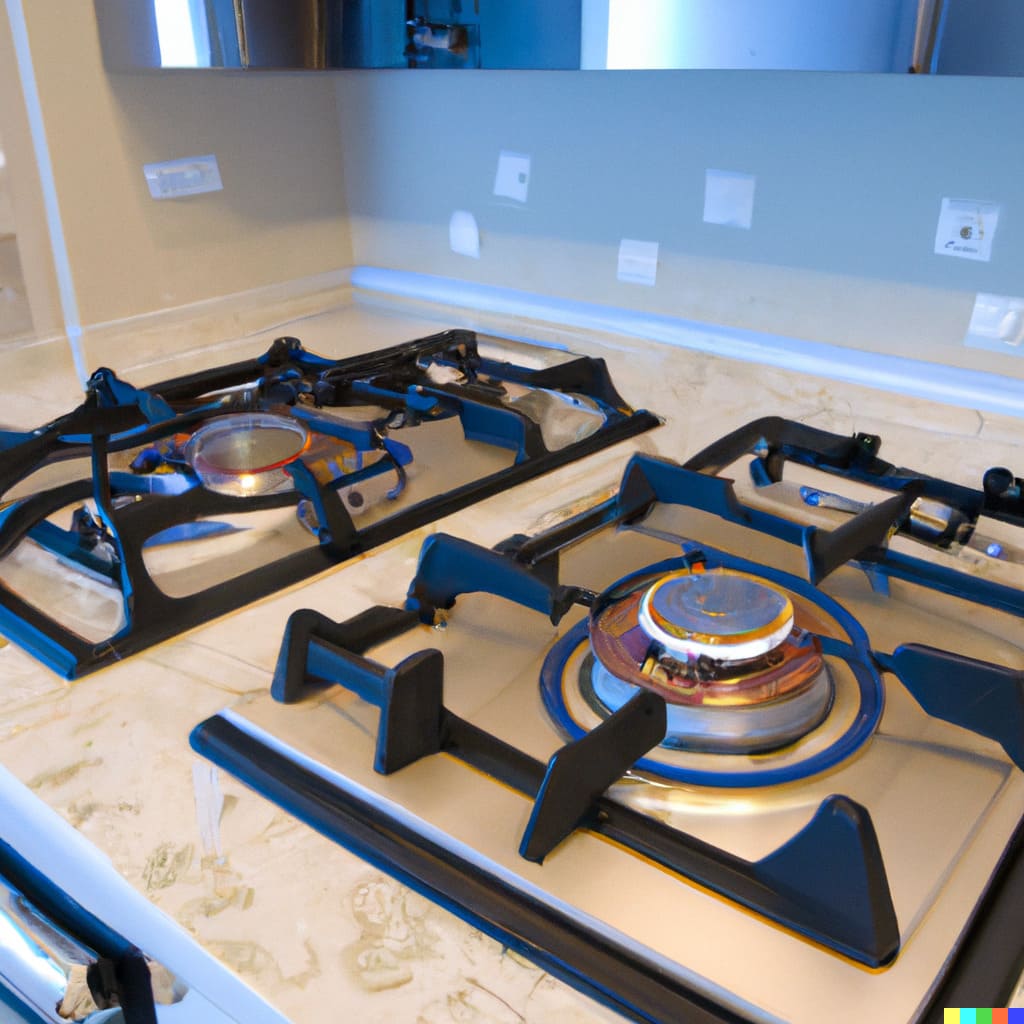When it comes to purchasing a new home, many potential buyers have to make a lot of decisions. One of the most critical decisions that must be made is choosing a gas or electric stove. There is a lot of debate over which type of stove is the best option for homebuyers.
In this blog post, we will provide an in-depth look at the gas and electric stoves and answer the question: Do home buyers prefer gas or electric stoves? We will provide an unbiased look at the advantages and disadvantages of both types of stoves so that you can make an informed decision.
Do Home Buyers Prefer Gas Or Electric Stoves?
It is difficult to say whether home buyers generally prefer gas or electric stoves, as it often comes down to personal preference. Some people prefer gas stoves because they provide more precise heat control and can also be used for outdoor cooking.
Others prefer electric stoves because they are often easier to clean and have a sleek, modern design. Additionally, the availability of gas or electric power in a specific area also influences the preference.
Features Of Gas Stoves.
Gas stoves have several features that distinguish them from electric stoves:
-
Heat
Gas stoves provide instant heat and offer more precise temperature control than electric stoves.
-
Cooking surface
Gas stoves typically have a smooth cooking surface that is easy to clean.
-
Burners
These stoves have burners that can be adjusted to provide different heat levels.
-
Ignition
Gas stoves have a spark ignition system that allows you to start the stove with a button.
-
Power source
These Gas stoves require a natural gas or propane hookup, which may not be available in all areas.
-
Outdoor cooking
Gas stoves, such as on a patio or deck, are often used for outdoor cooking.
-
Cost
Gas stoves tend to be less expensive than electric stoves upfront and in the long run, but the cost may vary depending on the location and availability of natural gas or propane.
-
Resale value
They can be popular with potential buyers, as they might be preferred over electric stoves by some.
Features Of Electric Stoves.
Electric stoves typically have several features, including:
-
Heating elements
These are the parts of the stove that generate heat. Electric stoves have heating elements made of metal coils or ceramic plates.
-
Temperature control
Electric stoves have a way to adjust the temperature of the heating elements, typically through the use of knobs or a digital display.
-
Burners
Electric stoves have a specific number of burners, the areas where the pots and pans are placed. Burners can be either coil or smooth tops.
-
Timers
Some electric stoves have built-in timers that allow you to set a specific cooking time.
-
Self-cleaning option
Some electric stoves have a self-cleaning feature that uses high heat to burn off food residue.
-
Safety features
Some electric stoves have automatic shut-off or overheat protection to prevent accidents.
Gas Vs Electric Stove Pros And Cons
Gas stoves and electric stoves have their own pros and cons. Here are some of the main differences between the two:
Gas Stoves Pros
-
Faster heating:
Gas burners heat up quickly and can be adjusted instantly, allowing for more precise cooking control.
-
Cost-effective:
Gas is typically cheaper than electricity, so cooking with a gas stove can be less expensive in the long run.
-
Outdoor use:
Natural gas stoves can be used for outdoor cooking and can be connected to a gas line.
Gas Stoves Cons
-
Requires a gas line:
A gas stove needs to be connected to a gas line, which may not be available in all homes.
-
Risk of gas leaks:
Gas stoves can be dangerous if not correctly installed or maintained, as they can leak gas and cause a fire or explosion.
-
Can’t be used in power outages:
Gas stoves are not a reliable heat source during power outages, as they require a constant gas supply.
Electric Stoves Pros
-
Easy to install:
These stoves can be plugged into a standard outlet and do not require a gas line.
-
Safer:
Electric stoves do not produce flames or gas leaks, making them safer to use than gas stoves.
-
Can be used in power outages:
Electric stoves can be used as a heat source during power outages, as long as there is a backup generator or the stove is connected to a battery.
Electric Stoves Cons:
-
Slow to heat:
Electric burners take longer to heat up than gas burners and may not heat as evenly.
-
More expensive to operate:
Electric stoves are typically more expensive than gas stoves due to the cost of electricity.
-
Limited temperature control:
These stoves may not offer as much temperature control as gas stoves, making them less suitable for certain types of cooking.
Gas Vs Electric Stove Monthly Cost
The monthly cost of using a gas stove versus an electric stove will vary depending on several factors, including the cost of gas and electricity in your area, the cost of the stove, and how frequently the stove is used. On average, a gas stove is likely to be less expensive than an electric stove. However, the cost difference will depend on the specific prices in your area.
Gas Vs Electric Stove Health
Gas stoves and electric stoves are both safe for cooking, but there are differences in health risks. Gas stoves may release small amounts of carbon monoxide and nitrogen dioxide, which can be harmful in large amounts. Electric stoves do not release these gases but can produce electromagnetic fields. Some studies are linked to cancer, but further research needs to be conducted.
In addition, if a gas stove is not correctly ventilated, it can lead to a buildup of moisture, which can promote the growth of mold and other allergens. Electric stoves do not have this issue. It is essential to keep your stove clean, whether it is gas or electric, to reduce the risk of health issues.
Are Gas Or Electric Stoves More Efficient?
Gas stoves are generally considered more efficient than electric stoves, as they heat up faster and are more precise in regulating temperature. However, electric stoves are more energy-efficient in the long run because they don’t waste heat and are less expensive to operate than gas stoves. It also depends on the electricity and natural gas costs in your area. Ultimately, the most efficient stove is the one that best meets your cooking needs and preferences.
Are Gas Or Electric Stoves More Popular?
It depends on the location and personal preference. In the United States, gas stoves are more prevalent in the western states, while electric stoves are more prevalent in the eastern states. However, in recent years, induction cooktops have been growing in popularity due to their energy efficiency and precision in temperature control. Overall, it’s a matter of personal preference and availability.
How Often Should A Gas Stove Be Serviced?
It is recommended to have your gas stove serviced at least once a year by a professional. This will ensure that it is operating safely and efficiently. Additionally, suppose you notice any issues with your stove, such as an unusual smell or a decrease in performance. In that case, it is a good idea to have it serviced as soon as possible.
Which Is Better Gas Or Electric Stove?
Both gas and electric stoves have their unique benefits and drawbacks.
Gas stoves heat up quickly and allow for more precise temperature control, but they require a gas line and can produce an open flame.
Electric stoves are typically safer and easier to clean. Still, they may be slower to heat up and need more precise temperature control.
Ultimately, the choice between a gas and electric stove will depend on your personal preferences and the specific features that are most important to you.
How Much Does A Gas Stove Cost?
The cost of a gas stove can vary greatly depending on the brand, size, and features of the stove. On average, a basic, freestanding gas range with four burners can cost anywhere from $300 to $700. However, more high-end models with additional features such as a double oven, convection cooking, or stainless steel finish can cost up to $2,000 or more. It’s best to research and compare different models to find the best price for the features you want.
How Long Do Electric Stoves Last?
The lifespan of an electric stove can vary, but on average, it can last between 13-15 years with proper maintenance. Factors such as usage, care and cleaning, and appliance quality can affect an electric stove’s longevity. It is essential to regularly clean and maintain the stove to ensure it lasts as long as possible. If any problems occur, it is best to have them fixed by a professional as soon as possible to prevent further damage.
How Long Do Gas Stoves Last?
Gas stoves can last for many years with proper maintenance, with an average lifespan of around 15-20 years. However, the lifespan of a gas stove can be shortened by factors such as lack of maintenance, frequent use, and exposure to high heat. It is essential to regularly clean and maintain a gas stove to ensure its longevity. In addition, it is also a good idea to have a professional inspect and service the stove periodically to ensure that it is operating safely and efficiently.
Which Is Cheaper Gas Or an Electric Stove?
Gas stoves are generally cheaper to operate than electric stoves. However, the initial cost of a gas stove is typically higher than that of an electric stove. Additionally, the cost of gas can vary depending on the location and the price of natural gas. In contrast, the cost of electricity is usually more consistent. It can be affected by the cost of electricity in your area.
Why Are Gas Stoves Better?
Gas stoves are considered better than electric stoves for a few reasons. They heat up more quickly and provide more precise temperature control. They also allow for a broader range of cooking methods, such as wok cooking and high-heat searing. Additionally, gas stoves can be less expensive to operate over time.
When To Choose A Gas Stove?
A gas stove should be chosen if you prefer the immediate heat control and flame visibility that gas burners provide. Gas stoves are also typically less expensive to operate than electric stoves. Also, in case of a power outage, a gas stove can still be used for cooking. However, it is essential to consider whether a gas line is readily available in the stove’s location.
When To Choose An Electric Stove?
An electric stove may be a good choice if you prefer the precision and consistency of electric heating elements, if you do not have a gas line in your home, or if you prefer the design and features of electric stove models. Additionally, electric stoves can be more energy-efficient than gas stoves in certain situations.
Overall Thoughts
In the end, whether a home buyer prefers a gas or electric stove ultimately depends on their personal preferences and needs. Gas stoves are known for their fast heating and precise temperature control. In contrast, electric stoves offer convenience and ease of use. Ultimately, the choice between the two will come from cost, availability, and the buyer’s cooking preferences.
It is also essential to consider the stove’s energy efficiency, safety, and maintenance. Ultimately, gas and electric stoves have unique benefits, and it is up to the home buyer to determine which one is the best fit for them.




